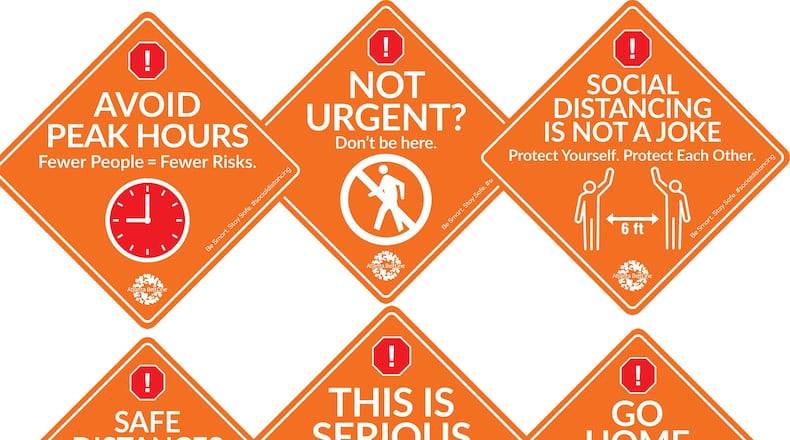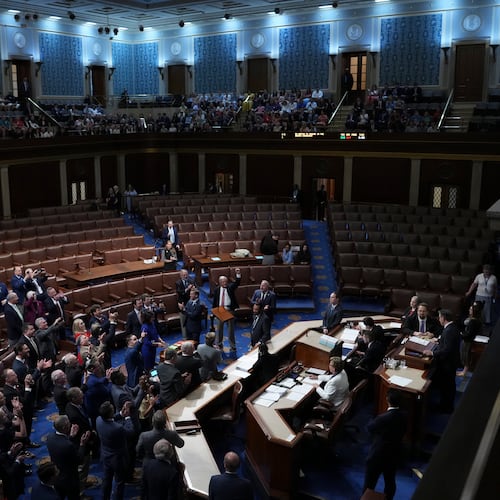We are writing as three strangers with a common cause – to temporarily shut down the State of Georgia to slow the spread of COVID-19. We come from different professional disciplines – as a physician, a former Wall Street analyst, and a computer scientist. All of us independently drew the same conclusion: we must act, and we must act now.
We connected through two independent petitions calling for Georgia to be shut down, and we are not alone. In less than one week, over 100,000 signatures demonstrate widespread support.
The number of patients testing positive for COVID-19 and dying of the disease in Georgia is increasing rapidly. The numbers are frightening. As of this writing, Georgia has the 12th-highest number of cases in the country, and the 7th-greatest number of deaths. When adjusted for population size, our trajectory is the same as Italy’s and Spain’s. By this point in their own trajectory, Italy and Spain had already locked down nationally.
The number of lives we have lost already is terrible enough. From other countries, we know that the fatality rate due to COVID-19 increases substantially when local healthcare systems become overwhelmed by patients flooding in for care. Patients suffering from a heart attack, a stroke, or in a car accident, will also struggle to find help. Our healthcare workers, currently armed with insufficient personal protective equipment, are increasingly contracting the virus. In the hardest-hit regions of Europe, healthcare workers account for up to 20% of cases. Once healthcare workers fall sick, it becomes much harder to contain the virus and treat the disease.
Economically, we must think about the long game. With ongoing community spread of the novel coronavirus, businesses have already suffered massive losses due to the lower demand for restaurants, hotels, airlines, and other places where people gather. Demand will stay low so long as the disease continues to spread. The current half-measures in place to control the virus will ultimately result in a longer and more-painful shutdown.
There is an alternative. A strong, statewide shutdown now would significantly slow virus transmission, allow for faster containment, shorten the duration of depressed economic activity, and facilitate a faster return to business operations resembling pre-virus conditions. As such, sheltering-in-place and economic interests are not mutually exclusive interests – they are in fact aligned. Our economy is not viable with a growing, deadly pandemic sweeping through our state. Until we have adequately controlled the virus, our economy cannot recover.
Thus, we have two choices. Shut down Georgia to blunt the force of COVID-19 — or wait for COVID-19 to shut down Georgia for us.
The recent $2 trillion federal spending bill includes relief for individuals and small businesses. Georgia should also receive additional resources following the federal designation of Georgia as a major disaster area. We should use those funds and resources to bridge the gap during a complete shutdown. The government does not have endless fiscal bullets in the gun; we need to use this opportunity to solve the underlying problem.
It starts by staying home and giving healthcare workers, pharmacies, grocery stores, and sanitation workers a chance to do the best they can for everyone. Numerous doctors, including infectious disease experts in Georgia and around the country, have echoed this. The potential for our hospitals to be overrun is real. As more healthcare workers fall ill, our capacity to care for those sickened by the coronavirus will be weakened. We are fighting a war with one hand and four fingers tied behind our backs.
MORE: COMPLETE COVERAGE: Everything you need to know about the coronavirus
It was encouraging to hear Atlanta Mayor Keisha Lance Bottoms state that if it was up to her, the entire country would be shut down. But Gov. Brian Kemp must take stronger steps. All Georgians need to stay home; restrictions based on local density will not prove effective, as the outbreak in Dougherty County shows. Without a statewide shutdown and widespread testing, asymptomatic individuals and those with minimal symptoms will carry the virus between low- and high-density communities. All Georgians need to come together for this common cause. We can do it. This is not forever, and the sooner we start, the sooner we can get back to being a healthy community.
The Governor stated that today’s data reflects what happened two weeks ago. We cannot wait another two weeks for numbers to show us what we know is happening today. Countless irreplaceable lives are being lost. We must act now to stem the tide with stronger measures. Thirty-five other states have already ordered shutdowns. We too need a statewide shutdown to save the most Georgians possible.
Stay home, stay safe!
Dr. Akshat Pujara, a board-certified diagnostic radiologist practicing in Atlanta, Michael Callahan, a former Wall Street analyst, and Nancy Ouyang, a computer scientist who lives in Duluth.
Dr. Akshat Pujara, is a board-certified diagnostic radiologist practicing in Atlanta.
Michael Callahan worked as a financial analyst during the 2008-2009 financial crisis for a $3 billion investment fund. He lives in Alpharetta and is a strategic advisor to publicly traded companies.
Nancy Ouyang earned her master’s degree in computer science from Harvard University and her bachelor’s degree from the Massachusetts Institute of Technology. She is currently researching robotic manipulation while pursuing her PhD. She was born in Atlanta and raised in Duluth, where she has returned to during this pandemic.
Keep Reading
The Latest
Featured








